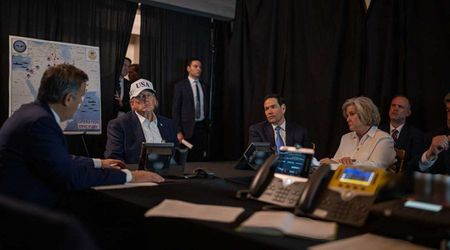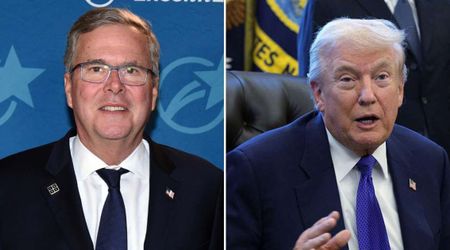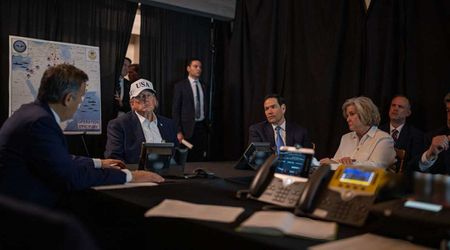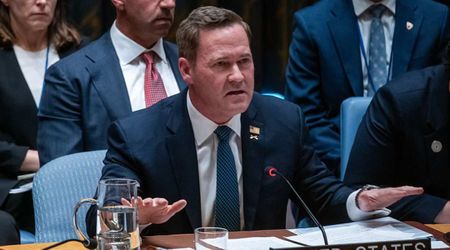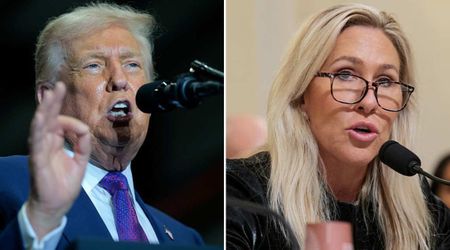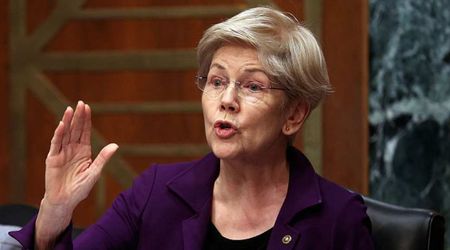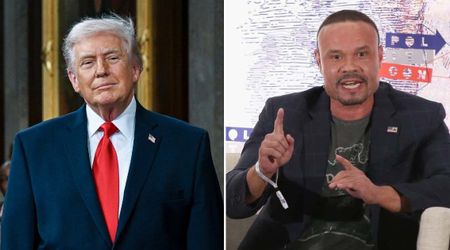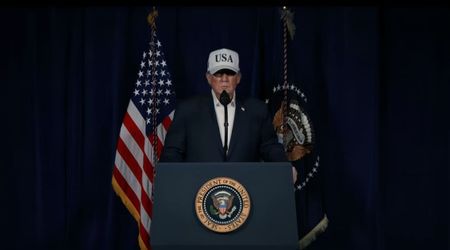'She has no part in this': Internet weighs in as Nikki Haley declares 'embryos are babies' following Alabama Supreme Court verdict
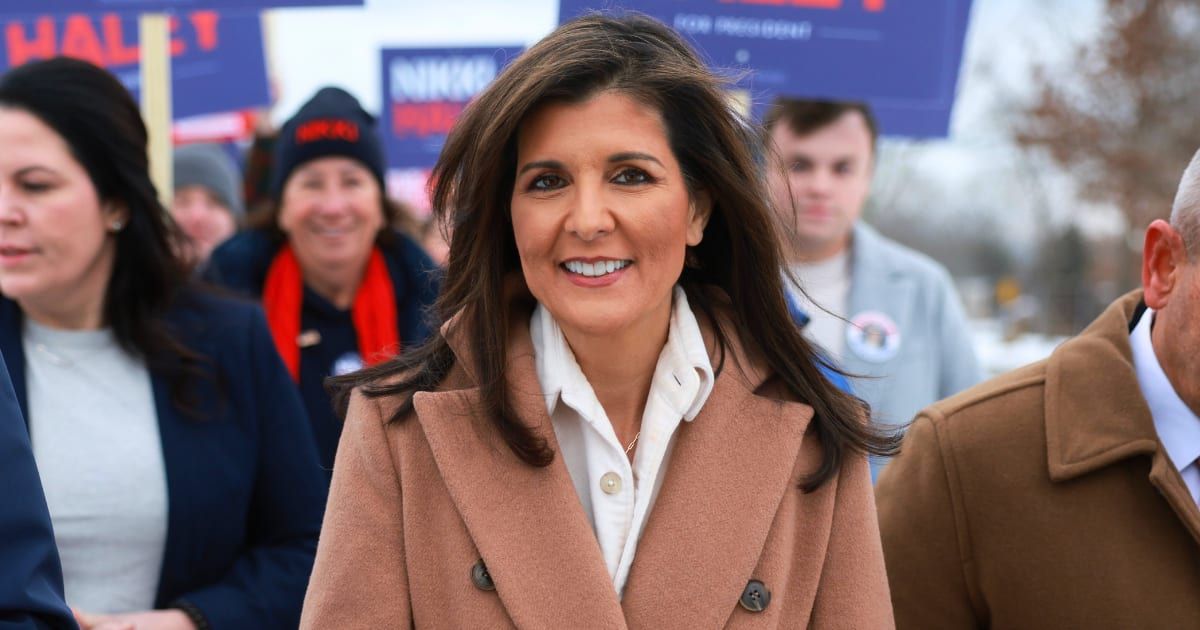
CHARLESTON, SOUTH CAROLINA: Nikki Haley, the former US ambassador to the United Nations, ignited a contentious debate on Wednesday, February 21, when she expressed her belief that frozen embryos created via in-vitro fertilization (IVF) should be considered "babies."
Haley's remarks followed a recent ruling by the Alabama Supreme Court, declaring embryos conceived through IVF as legally recognized children under state law.
Nikki Haley's stance on embryos
In an interview with NBC News, Haley shared her personal experience with fertility treatments, disclosing that she had used artificial insemination to conceive her son, Nalin.
While acknowledging that artificial insemination differs from IVF, Haley emphasized her conviction that embryos represent life, stating, "Embryos, to me, are babies."
Haley's statements illuminated the intricacies of IVF procedures, highlighting the common practice of fertilizing and storing multiple embryos because of the costly and physically demanding aspects of the process.
"When you talk about an embryo, you are talking about, to me, that's a life. And so I do see where that's coming from when they talk about that," she added.
Nikki Haley, who conceived her son through artificial insemination, reacts to the Alabama Supreme Court ruling that frozen embryos are human beings under state law:
— The Recount (@therecount) February 21, 2024
“Embryos, to me, are babies … That's a life.” pic.twitter.com/I3Sj1lFaSd
Haley previously elaborated on her struggles with fertility, mentioning her son, Nalin, and her daughter, Rena, born in 1998 and 2001, respectively. She highlighted how her challenges in conceiving influenced her pro-life stance.
"Michael and I struggled to have children of our own. I had many challenges as a teenager, and in my college years. I went through numerous surgeries. When Michael and I were married, I couldn't wait to be a mom. But what happened so easily for many of my friends, was not my family. We went through countless sessions of fertility treatments," she said during a speech on abortion rights last April.
"Every day I wake up and see or speak to my two children. I feel blessed. The greatest job I've ever had is being their mom," she added.
Social media reactions to Haley's remarks
Social media was flooded with responses to Haley's remarks.
"We? She has no part in this. It's just between the Dr and the patient," one user posted on X.
"Hey @NikkiHaleyHQ what did you do with your leftover frozen embryos? Are they still on ice? Isn't that unethical to keep a baby frozen?" another asked.
"If she had IVF, they destroyed the extra 'babies,'" a comment read.
"What about all the time it didn't work? Was that murder since they had artificially initiated the process?" someone else wondered.
"So we try to implant unsuccessfully 9x, but on the 10th time, it works. Now we can be charged with nine murders? Amazingly dense, short-sighted, and yes, non-Biblical decision," another user chimed in.
We? She has no part in this. It's just between the Dr and the patient
— Jeff (@JeffFarkas11) February 21, 2024
Hey @NikkiHaleyHQ what did you do with your left over frozen embryos? Are they still on ice? Isn't that unethical to keep a baby frozen?
— Proud to be Vermin🌻🌻🌻 (@benni1028) February 21, 2024
If she had ivf, they destroyed the extra “babies”.
— Dinah Fyre🟧🌻☮️🏳️🌈🏳️⚧️🇺🇦 (@DerbyGrouch) February 21, 2024
What about all the time it didn't work?
— Caleigh Fisher (@Kali_fissure) February 21, 2024
Was that murder since they had artificially initiated the process?
So we try to implant unsuccessfully 9x, but on the 10th time it works. Now we can be charged with nine murders? Amazingly dense, short sighted, and yes, non-Biblical decision. Gonna cost us 2024.
— Eezallgood (@eezallgood) February 21, 2024
The Alabama Supreme Court's decision raises significant questions about the legal status of these embryos and the potential implications for clinics and families involved in IVF treatments.
The ruling, backed by seven out of nine judges, including Chief Justice Tom Parker, has sparked extensive discussion among both the public and the medical community.
Critics of the decision argue that it fails to account for the nuances of modern fertility technology and could have far-reaching consequences for reproductive rights.
The University of Alabama at Birmingham (UAB) has already announced a temporary halt to IVF treatments in response to the ruling, citing concerns about potential criminal prosecutions and lawsuits.
A spokeswoman for UAB expressed regret over the consequences for patients seeking fertility assistance through IVF, stating, "But we must evaluate the potential that our patients and our physicians could be prosecuted criminally or face punitive damages for following the standard of care for IVF treatments."
Legal and moral justifications
Chief Justice Parker justified the court's decision by invoking religious and moral considerations, stating, "Human life cannot be wrongfully destroyed without incurring the wrath of a holy God, who views the destruction of His image as an affront to Himself. Even before birth, all human beings bear the image of God, and their lives cannot be destroyed without effacing his glory."
On the other hand, dissenting views, such as those expressed by Justice Greg Cook, contend that the ruling relies on antiquated legal statutes and overlooks the complexities of contemporary reproductive technology.
The lawsuit that prompted the court's decision involved a group of IVF patients whose frozen embryos were destroyed in a storage mishap.
The plaintiffs alleged negligence on the part of the clinic and sought legal recourse under Alabama's Wrongful Death of a Minor Act.
The court ruled in favor of considering embryos as children under the law, stating, "The relevant statutory text is clear: the Wrongful Death of a Minor Act applies on its face to all unborn children, without limitation."



